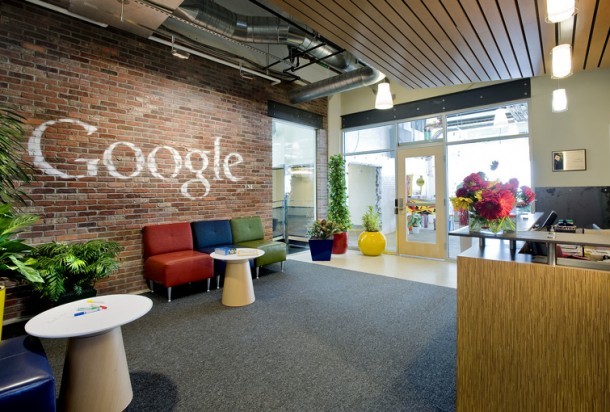Experts' Opinions About Google's “20% Rule” History

In the IT sector, labor productivity is directly dependent on developers. Therefore, companies are looking for and sometimes find very paradoxical ways of motivation, compensation and other optimization of the work of the knights of the intellectual order.
However, not all of them find them, but only the most zealous pioneers. And after that, the public enthusiastically watches what happens in the same Google. Someone wants to use programs like the “20% rule” in their company, and someone is skeptical. Unanimous opinion usually does not exist.
We asked experts to comment on this topic.
How effective is this rule? For which companies do such innovations work best? Are large Russian companies ready for such an experiment? In which Russian IT companies has this already been implemented?
“Google launches thousands of mini-projects, which are themselves left to prove their profitability. Of the hundreds of launched projects, only a few will be truly worthwhile, and 2-3 will set a new trend. This is similar to two types of extraction of resources: intensive (in depth) and extensive (in breadth). Google is digging in breadth and no, no, and stumble upon a couple of top-quality diamonds. You have to understand that not every company can afford to bury hundreds of projects in order to find some worthwhile ones, ” wrote Geektimes user in 2014, who had an internship at Google.
The “20% Rule” was once cited as an effective approach to innovation at Google. Each Google employee had the right to devote 20% of the working time, that is, one day a week, to devote to third-party projects. Thanks to the 20% rule, such projects as Gmail and AdSense, Google Cardboard, as well as hundreds of small projects, many of which went to Open Source, were born at one time.

“Google has a lot of small teams that come from 20 percent projects. With so many small startups inside the company, it’s hard for everyone to find a logical place in the hierarchy. In addition, the essence and purpose of some teams changes over time. Hence a little mess, ”the user adds.
Maxim Nalsky , CEO Pyrus

The 20% rule of Google is not about third-party projects, because the results of the work belong to the corporation.
Our company has another rule: developers themselves plan 100% of their tasks. We have an iterative development. We meet on Mondays, and each developer must come with his plan for the week. Everyone knows the global plans of the company: when the release and what will go into it. But not managers should tell developers what to do, but they themselves should come and say: "I will do this." At meetings, we moderate and adjust plans and priorities.
Why is this the case with us and why did Google make the “20% rule”? The reason is that companies are competing for the best people. A really strong developer does an order of magnitude more than the industry average. The difference is really an order of magnitude - x10. There are simply things that one developer can do, and 10 developers will never do. There are such talents, and employers are fighting for them.
Google attracts the best developers from around the world. Creative people cannot be forced to do what they are not interested in. They need to be given some freedom.
As for the rule itself, there are different opinions. It is believed that only 10% of employees use this rule in Google. When Marissa Meyer came to Yahoo !, she was asked: “When will you make this rule 20% at Yahoo?” She replied: “I’ll tell you a terrible secret about Google. This rule is not 20%. This is a 120% rule. ”
Personally, I am convinced that nothing worthwhile, working 20% of the time, cannot be done in a year. When you create a new product, you give your best 200%, live this idea and do it from morning to evening. Therefore, for these 20% of the time, you can only find some idea and convince your leadership to allocate resources.
Jovan Savovich, Futuriko

It seems to me that at our company everyone manages all 100% of their time, at least we have been striving for this recently and consciously, as part of the mechanics of the process.
And I don’t know if this is right in terms of efficiency, and I’m not sure about other companies, how would it go. But we try to decide for ourselves what is important, everything.
Ilya Sachkov , Group-IB

I think this rule did not appear on Google from the first day the company existed. And I think that it appeared on the day when the company was in a stable condition, and it needed growth, and it was ready to attract startups.
Of course, the best startups can give birth, including internal employees. But, for us, for example, at the moment it is much more important to improve our own products that have not yet fully captured the market. Some of them are at a very early stage. Therefore, for our stage of development of the company, it is more important for employees to improve existing products and expand their functionality.
For companies such as Mail.ru or Yandex, such a strategy and such projects are probably possible. I have not heard of such a thing in Russia, but such a culture resembles precisely Yandex.
Alexey Krainov , Riot Games Russia Director

I can only say for Riot Games: we work for Free Schedule - working hours, the number of holidays and days off - at the discretion of the employee. Globally and locally in the Moscow office.
You need to understand that this is possible only among really strong pros and responsible people. They can already dispose of this approach with value for themselves and for the company.
Vladislav Kochetkov, FINAM

In a financial company, employees usually work in tight time constraints. And even if they allocate 20% of the time for creativity by order, the majority will prefer to use this time to solve current problems.
But we have economists, strategists and analysts who are engaged in research and development of concepts, design of new products and the like creative.
Such a rule is theoretically effective for companies with an ad hoc type of organization, as Cameron and Quinn call it. That is, for young, fast-growing companies where KPIs often change. If KPIs were tough, instead of implementing their own ideas, employees would try to increase the indicators set by managers (it does not matter how much these indicators are adequate to the market situation).
In practice, this rule has proved itself mainly in large profitable IT companies that rent the so-called “innovative rent”, i.e. make a profit due to the fact that they were the first in some direction.
Such large IT companies often served as cemeteries for the ideas of their employees and a source of personnel for competitors. Usually, Xerox history is cited as an example, where a lot of useful innovations were invented, but only a small part of it was brought to implementation.
Small market-oriented companies rarely carry out R&D, so this rule is not viable. Small companies are not so marginal (like Google or Yandex) to often take the risk of inventing new things. They copy more often. And for cloning and adapting the ideas of giants, you need not so much to supply employees with working time as, on the contrary, to monitor its intended use. As for startups, it is even more important for them that the team is focused on one goal.
In Russia, a similar program [20% type] was implemented at Yandex. In particular, as far as I know, the project "School of Webmasters" appeared.
Arthur Sakharov , Redmadrobot

Dry cleaning, a gym, a kindergarten, a car service center are infrastructure that IT giants are gathering so that employees spend as much time as possible in the company's office. Eric Schmidt, by the way, speaks of the “120% rule” - developers devote 100% of their time to work, 20% to their projects, which, due to the environment created by the IT company, take up much less resources. In reality, Google engineers spend even more time doing development because they just don't have to deal with everyday home problems.
At Redmadrobot, developers are involved not only in commercial projects and not only in coding. They participate in R&D activities, in process automation, development optimization, speak at conferences, write articles on Habr - time is allocated for all this. We do not have a clear rule of 20% because in fact it is not anywhere. We try to build a structure and plan work so that employees do what benefits the company, without strong restrictions. Naturally, it turns out that novice developers are almost completely busy on projects and pumped on them, and the coolest ones spend up to 60% of their time on activities aimed at development and future. It cannot be otherwise, the company is a testing ground for the development of its employees, for the development of new technologies by them, from which new products and solutions then emerge,
Ruslan Fazlyev , Ecwid

Business requires 100%.
Google has de facto closed the 20% initiative. Only absolute focus makes victory possible. How effective would it be if we introduced ourselves? And we introduced. X-Cart, a PHP e-commerce platform, had the opportunity for employees to incubate their projects. No one could. Projects that were actually successfully incubated by X-Cart - Ecwid, Tittygram, were made by more than one employee, and the company gave resources to them. A loner can conduct reconnaissance, but victory only happens when the company begins to take the project seriously.
In a small company, the 20% rule is a disaster; startups cannot afford to lose 20% of productivity. And if people want to cut some other products besides the main one, this is an occasion to think: is the main one so interesting, is it time to “shake everything”.
In a large company, a useful exhaust of 20% can occur only when it seriously begins to support individual initiatives. Will support everything - it will be washed out. As a result, it turns out that the “20% system” cannot work de facto: employees are sawing their projects for emission.
What really works is themed hackathons from time to time, and we arrange them.
In 2004, Larry Page and Sergey Brin first stated that the company uses the “20% rule”.
In 2013, the media wrote that employees were deprived of the right to open their own projects under the “20% rule”. With the advent of Larry Page Corporation’s main chair, politics has changed dramatically. A new course was taken to maximize the effectiveness of development with a small number of areas, and not to diversify projects.
The abolition of the “20% rule” began with the fact that in 2012 developers were required to obtain special permission for third-party projects from the manager. Here that on this occasion he wrote the director of development of Google+ James Whittaker in 2012, explaining the reason for his departure:

“Under Eric Schmidt, advertising was always in the background. Google operated as a factory of innovation, encouraging employees to entrepreneurship through founders' rewards, bonuses and 20% of the time. Advertising revenue provided us with a margin for thought, invention, and creativity. Forums like App Engine, Google Labs, and OpenSource have been a foothold for our inventions. We did not reach the fact that it was all paid for by an ATM full of advertising.
Probably, it came to engineers specifically developing advertising, but everyone else was convinced that Google was primarily a technology company; a company that has hired smart people and put a big bet on their ability to innovate.
Strategically important products like Gmail and Chrome emerged from this innovation machine: products that were the result of an initiative at the lowest levels of the company. Of course, such an unstoppable pioneering spirit sometimes leads to failure. Google had such, but the company always knew how to quickly fall, get up and draw conclusions.
In such circumstances, you should not be part of any special “inner circle” for success. You should not be lucky with getting a cool project on which you can make a career. Anyone with ideas or the ability to work together can contribute. During this time, I had several opportunities to leave Google, but I could not imagine a better place to work. But, as they say, it was then, and now - it is now. "
Then Google formed a powerful analytical department that analyzed staff productivity. To work with maximum efficiency, employees need to devote 100% of their time to the main project. Therefore, those wishing to apply for the opening of the project according to the “20% rule” became less and less.
Formally, this rule continues to exist in the company, but in practice its application is not approved.
